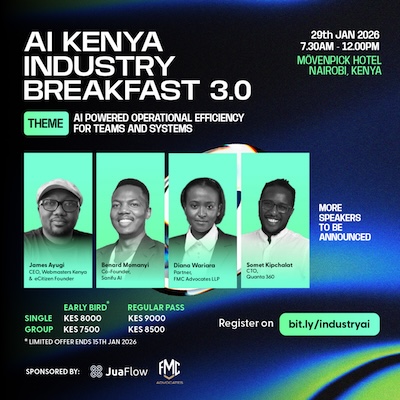
By Clemens Weitz, CEO: ROAM (Ringier One Africa Media)
In recent months, Africa has seen several big announcements of international multi-million-dollar awards to build more inclusive, sustainable economies in the region. Jack Ma’s Netpreneur Award, France’s $76m Africa Start-up Fund, MIT’s Inclusive Innovation Challenge, and many other similar initiatives are recent evidence of this mindset shift. We believe Millennials are at the heart of this new trend.
Africa experiences double-digit GDP growth in many territories, rapidly accelerating rates of digitization and urbanization on the continent. Millennials are the world’s largest generation in size, and drive these positive trends: They make up more than a third of Africa’s 1.2 billion people, while inhabitants below the age of 19 account for around 51% – so they are one of Africa’s most critical assets.
All character stigma aside, they’re the most open-minded, ambitious generation yet, and are actively involved in the world around them. Millennials are disruptors and innovators, known in Western economies for their uncanny ability to topple entire industries.
These digital citizens may be “troublemakers” because they inherently question the status quo. A few policymakers see new social media, direct sharing of news and video, however, we see opportunity only: They are innovators, tech-savvy, opinionated, enterprising and socially conscious. And nowhere is their influence more significant, and more necessary, than in Africa.
So “what African Millennials want” is an important question for every business, and especially ROAM. As the continent’s first true digital citizens, Millennials’ use of, and trust in, digital platforms like ours is critical to the future health of Africa’s digital economies. Whether searching for work on Jobberman, buying a home through BuyRentKenya, importing a car through Cheki, or purchasing furniture on Pigiame – our platforms are designed for easy usability and to offer consumers the freedom of both convenience and choice in their everyday lives. Every day, our platforms facilitate more than 25,000 qualified contacts to new opportunities.
Now that Millennials are full-blown adults, with considerable spending power and strong opinions about the kinds of services they want to use – not to mention the kinds of businesses they want to engage with – even the best-established organizations are sitting up and taking notice.
Here’s why Millennials are key in driving this mindset shift.
- They’re first adopters when it comes to Africa’s digital transformation
Millennials in Africa were the first generation to truly feel the influence of digitization on the ways they live, work and communicate. This has been fuelled in large part by the critical role of mobile connectivity, which has allowed the region to leapfrog over the legacy of poor infrastructure that continues to delay widespread adoption of fixed-line internet connections. A 2017 GeoPoll survey reports that social media is now the primary source of news and information for 60% of 18-to-35-year-olds in Africa, and that includes the way they research products they’d like to buy, brands they’d like to own, and employers they’d like to work for.
What’s more, the ripple effect of Millennial internet adoption extends to practically every other segment around them. Millennials are also introducing their seniors to the convenience of digital, breathing new life into Africa’s long-thriving informal economies and augmenting the consumer power and transparency even further. This also drives the maturity of tech and startups born in Africa, which has increased greatly in the last 2 years. The great success of companies such as Andela, or organizations like Meltwater Entrepreneurial School of Technology, are a testament to this important development.
- They are switched on
The socio-political power of the internet in Africa has become exceedingly apparent. The generation’s mandate to drive democracy, equality, transparency, tolerance and opportunity persists among Millennials and those generations after them – with both businesses and governments now under increasing pressure to deliver. If young consumers don’t like what they see, they will take their hard-earned money and business elsewhere.
They will likely do their part instead to uplift local SMEs and smaller players who understand them, more closely align with their needs and worldview. An example: Zamaan, a powerseller on Expat-Dakar.com, is delivering to your door, 24/7, for most competitive prices. Agility is his competitive edge, now with tech-enabled reach that will beat the global ecommerce landscape.
- They demand business excellence
Millennials are notoriously picky and fickle when it comes to the companies and brands they support, and the African business community is upping their game accordingly: improving their service offerings, dropping prices, and doing anything else in their power to retain a once-captive audience that has suddenly gained limitless access to products and services from their competitors.
Millennials also demand a greater level of oversight and online security in an age when online fraud, hacks, and other cyberattacks are increasingly common. The old cliché about the so-called Nigerian 419 scam, it turns out, is not wholly unfounded. As a region with a long way to go to achieve digital maturity, Africa certainly isn’t immune to the trends of cybercrime, data leaks and ransomware that are proliferating worldwide today.
This is something that we at ROAM have always maintained as a top priority, and we approach it from two ends. The first is security. We strive to strike that delicate balance between free accessibility and tight security, and we leverage advanced technology to do so. Features like customer reviews, smart algorithms, blocking suspicious IPs, machine learning, and cross-referencing data, and other sophisticated methods to keep scammers out of the ROAM ecosystem. Secondly, we reward excellent customer focus: For instance, Cheki’s “Winning Dealer” initiative awards dealers who provide outstanding customer service, creating a real competitive advantage for them.
These activities are all central to building trust with our local audience and remain a key component of our strategy going forward. Expectations and rules of engagement are shifting wildly, and the business community will need to adapt to be part of the economic rise of the continent.
- They “hustle”
Operating in a veiled, largely informal economy for decades, it comes as a surprise to many that entrepreneurship has a long and proud history in Africa. The explosion of the internet has given millions of Millennial-aged freelancers, artisans, microbusinesses, start-ups, and participants in the booming “Gig Economy” the resources they need to transform their “hustles” into viable business opportunities. Encouraging this trend is key to stimulating economic growth in the region. Through them, every citizen has the power to become a microenterprise – freelancers, artisans and temporary labourers alike.
These digitally-enabled short-term and informal employment opportunities represent much-needed economic stimulus in a region still characterised by high rates of unemployment and poverty. Africa also continues to struggle to lower the barriers to education for its young citizens. Over time, some of these tech-driven, small-scale businesses will grow and flourish, providing even more employment opportunities and discretionary income for their workers, thereby stimulating both supply and demand simultaneously.
One thing is certain – African growth is driven by entrepreneurship. African Millennials do things differently and are determined to rise to the social, political and economic challenges facing the continent today. Millennial entrepreneurship is at the root of ROAM’s history, driven by brilliant founders such as Ayodeji Adewunmi, Opeyemi Awoyemi, Olalekan Olude, Mapenda Diop, Kirk Gillis, Carey Eaton and many more. We will always see it as a key part of our mission to further enable this type of African-inherent entrepreneurship – now at a larger scale.




